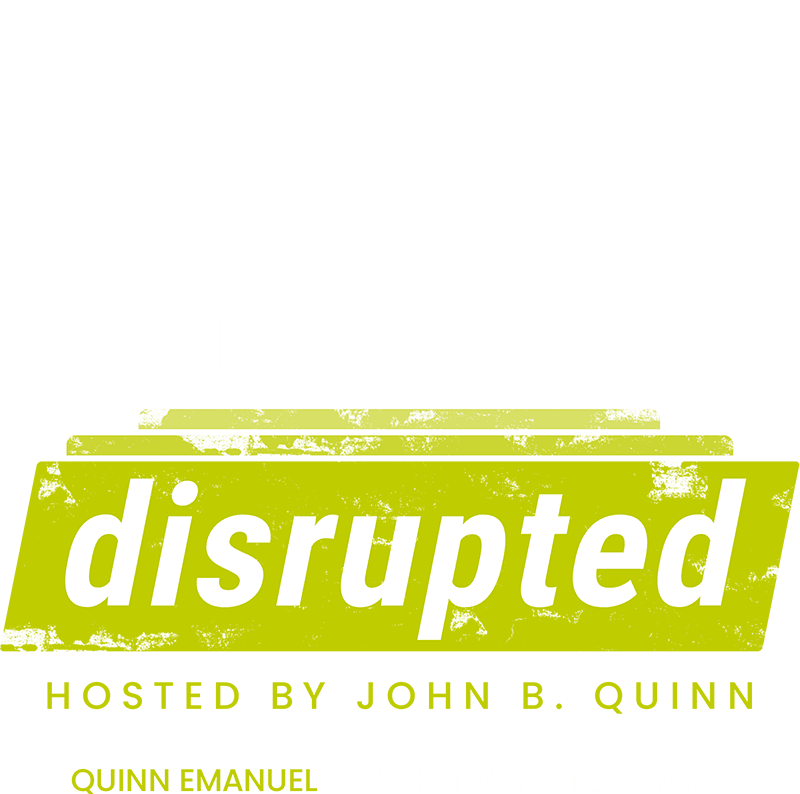Episode description:
In this episode of Law, disrupted, John is joined by Robert Charles O’Brien, the 27th National Security Advisor for the United States. He is also Partner Emeritus at Larson LLP and the Founder of the consulting firm, American Global Strategies. Together, they talk about the intersection between law and national security.
John and Robert begin the conversation by outlining what the office of National Security Advisor does: act as the primary advisor to the President on all foreign policy and security issues. Robert explains his role in pulling together a wide range of views on global issues, including divergent views throughout the federal government and making sure the President always had the best options and counsel possible to make informed decisions as well as ensuring those decisions are implemented.
John and Robert discuss the degree to which the President faces potential legal issues surrounding foreign policy matters. Robert touches on how every department within the government has its own specialized legal team and how all policy decisions are vetted by a myriad of lawyers. The two explore the various sources of law influencing foreign policy decisions, including Constitutional law, treaty obligations, federal statutes and regulations, as well as the wide latitude the Constitution grants the President in matters of foreign affairs. Robert delves into how particular international developments require extensive collaboration amongst government departments, providing specifics on issues such as prisoner exchanges and sanctions.
The conversation then moves to an in-depth discussion of China and the legal issues surrounding US-China trade disputes, with Robert noting how one of the great achievements of the Trump administration was raising the alarm on China. He touches on how turning a blind eye for the previous 40 years to important issues, such as China’s intellectual property theft, failed to achieve the desired results.
Later, they discuss China’s occupation of the South China Sea, specifically its claim to islands it created in the sea, which has led to international arbitration. Robert describes China’s approach as drawing an imaginary border in the sea and asserting its authority over this body of water, where 50% of the world’s trade flows. Robert dives deeper into the 2016 international case between China and the Philippines as an example of how China’s approach to the South China Sea violated the rights of other nations in the region, as well as constituting a series of environmental crimes. John and Robert discuss whether there is a mechanism to enforce the damages claim that the Philippines has against China and its assets. Robert explores on how delicate the intersection between law and politics is and highlights how the US could be drawn into any dispute in the region and some of the military considerations that would be involved.
John then steers the conversation toward the sanctions that were put against PRC officials as a result of the end of democracy in Hong Kong, with Robert explaining the history of Hong Kong, and then directing the topic toward Hong Kong and China’s relationship shifting dramatically in 2020. He outlines how 2020 legislation and executive orders have reshaped the relationship between the US and Hong Kong and how Hong Kong will be treated going forward. Robert discusses what the change in the relationship between China and Hong Kong means for the shape of future trade, collaboration, and partnership between the US and Hong Kong.
John and Robert then shift to discussing the importance of the actions taken by the US government in the world being seen as being consistent with the rule of law, including sanctions recently imposed on Russia. They explore the seizures of property belonging to sanctioned individuals and the need to reconcile immediate foreign policy goals with the long-term interests of maintaining the strength of the economy and the strength of the legal system. They expand upon the need for appropriate procedures to determine when seizures are necessary and how individuals can apply to regain their property when that is appropriate.
Finally, John and Robert turn to the genocide against the Uyghur Muslims in China and the concentration camps the Chinese government has created for members of the Muslim minority. The two discuss historical precedents and the legal effect of the Pompeo Declaration as well as the continuity in policy on this issue between the Biden and Trump administrations.
The two end the podcast by discussing the continued importance of the rule of law in avoiding violence in both domestic and international affairs.
Published: Aug 24 2022











